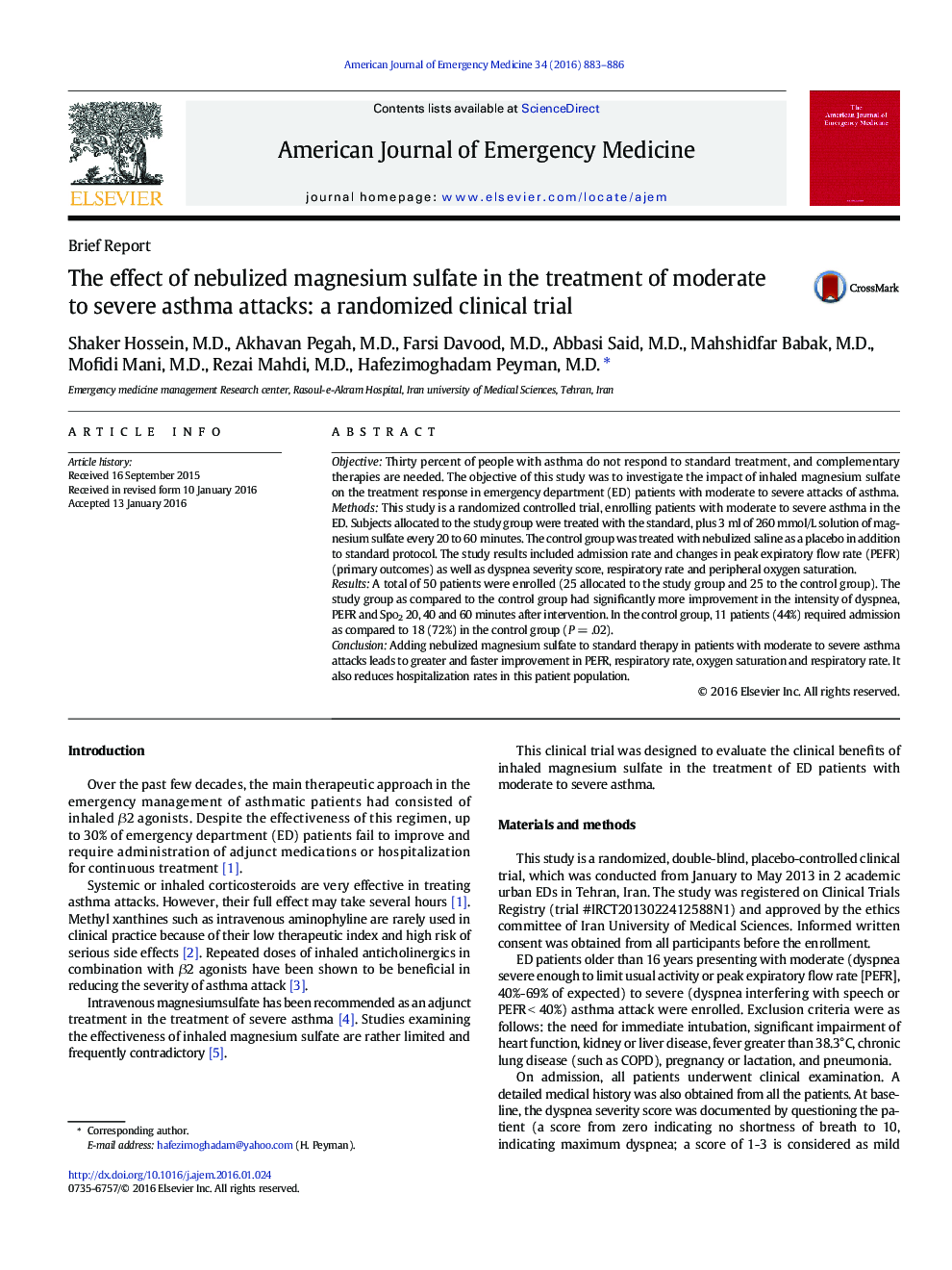| Article ID | Journal | Published Year | Pages | File Type |
|---|---|---|---|---|
| 3223306 | The American Journal of Emergency Medicine | 2016 | 4 Pages |
ObjectiveThirty percent of people with asthma do not respond to standard treatment, and complementary therapies are needed. The objective of this study was to investigate the impact of inhaled magnesium sulfate on the treatment response in emergency department (ED) patients with moderate to severe attacks of asthma.MethodsThis study is a randomized controlled trial, enrolling patients with moderate to severe asthma in the ED. Subjects allocated to the study group were treated with the standard, plus 3 ml of 260 mmol/L solution of magnesium sulfate every 20 to 60 minutes. The control group was treated with nebulized saline as a placebo in addition to standard protocol. The study results included admission rate and changes in peak expiratory flow rate (PEFR) (primary outcomes) as well as dyspnea severity score, respiratory rate and peripheral oxygen saturation.ResultsA total of 50 patients were enrolled (25 allocated to the study group and 25 to the control group). The study group as compared to the control group had significantly more improvement in the intensity of dyspnea, PEFR and Spo2 20, 40 and 60 minutes after intervention. In the control group, 11 patients (44%) required admission as compared to 18 (72%) in the control group (P = .02).ConclusionAdding nebulized magnesium sulfate to standard therapy in patients with moderate to severe asthma attacks leads to greater and faster improvement in PEFR, respiratory rate, oxygen saturation and respiratory rate. It also reduces hospitalization rates in this patient population.
